Every classic Porsche has an origin story – when it was built, how it was equipped, where it was first delivered. An important part of owning, and even restoring, a classic Porsche is knowing the details of this history. With its collection and storage of historic documents, Porsche is able to provide many pieces of original production information about its vehicles going back decades
Now, for the first time, the process of accessing these documents has moved online. One portal offers a path to accessing this data that is both fascinating for enthusiasts and valuable for preserving sports cars.
With the recently launched Porsche Vehicle Documentation site (vehicledocumentation.porsche.com), users can now request a Porsche Production Specification (PPS) from their computer or smart device, using a Vehicle Identification Number (VIN). They can also learn more about ordering a Porsche Classic Technical Certificate (CTC) and other documentation options available through Porsche and the national dealer network.
The Production Specification and Classic Technical Certificate both provide useful documentation to enhance the Porsche customer journey, but there are some key differences between them. The PPS contains your vehicle's original production card specifications, including optional equipment, exterior and interior color, engine and transmission type, production completion date and manufacturer's suggested retail price when available. It is available for all Porsche VINs and can only be ordered online through vehicledocumentation.porsche.com
The CTC goes further to include an inspection by a Porsche technical expert at a qualified dealership. The inspection allows a greater level of detail about the car, including determining if original parts may have been replaced.
It can also verify if the engine and transmission numbers and types currently in the vehicle match the original records. The CTC allows for a deeper understanding of a classic Porsche by providing this kind of certainty along with technical specifications and an expert opinion from a Classic Technician who has been certified by Porsche.
The CTC technical evaluation includes inspection results for the exterior, interior, drive system, underbody and suspension, professional photos of the vehicle exterior and interior and a detailed summary of your Porsche vehicle’s inspection from the Porsche Classic-trained technician in a handsome package worthy of being displayed at your next meet-up.
A CTC can only be ordered at a Porsche Classic Partner or a qualified Porsche dealer, and are available for the 356, 914, 959, and 911 up to and including Type 996, the Porsche Boxster, Type 986, first generation Cayenne, as well as all four and eight-cylinder vehicles, like the 924, 928, 944, and 968, and the Carrera GT super sports car.
Whether you are preparing to begin a complete restoration project or just looking to understand more about the history of your beloved sports car, Vehicle Documentation will have you prepared for the road ahead.
Information and vehicle documentation options
The Porsche Production Specification is priced at $150. The Porsche Classic Technical Certificate is priced starting at $500 plus local sales tax. Original Monroney (Model Year 19 and newer) and Personalized Monroney (MY20 and newer) labels are available for free for eligible customers through MyPorsche.
More information can be found on Porsche Vehicle Documentation FAQs. A comparison table between PPS and CTC features can be found with more information on the CTC.
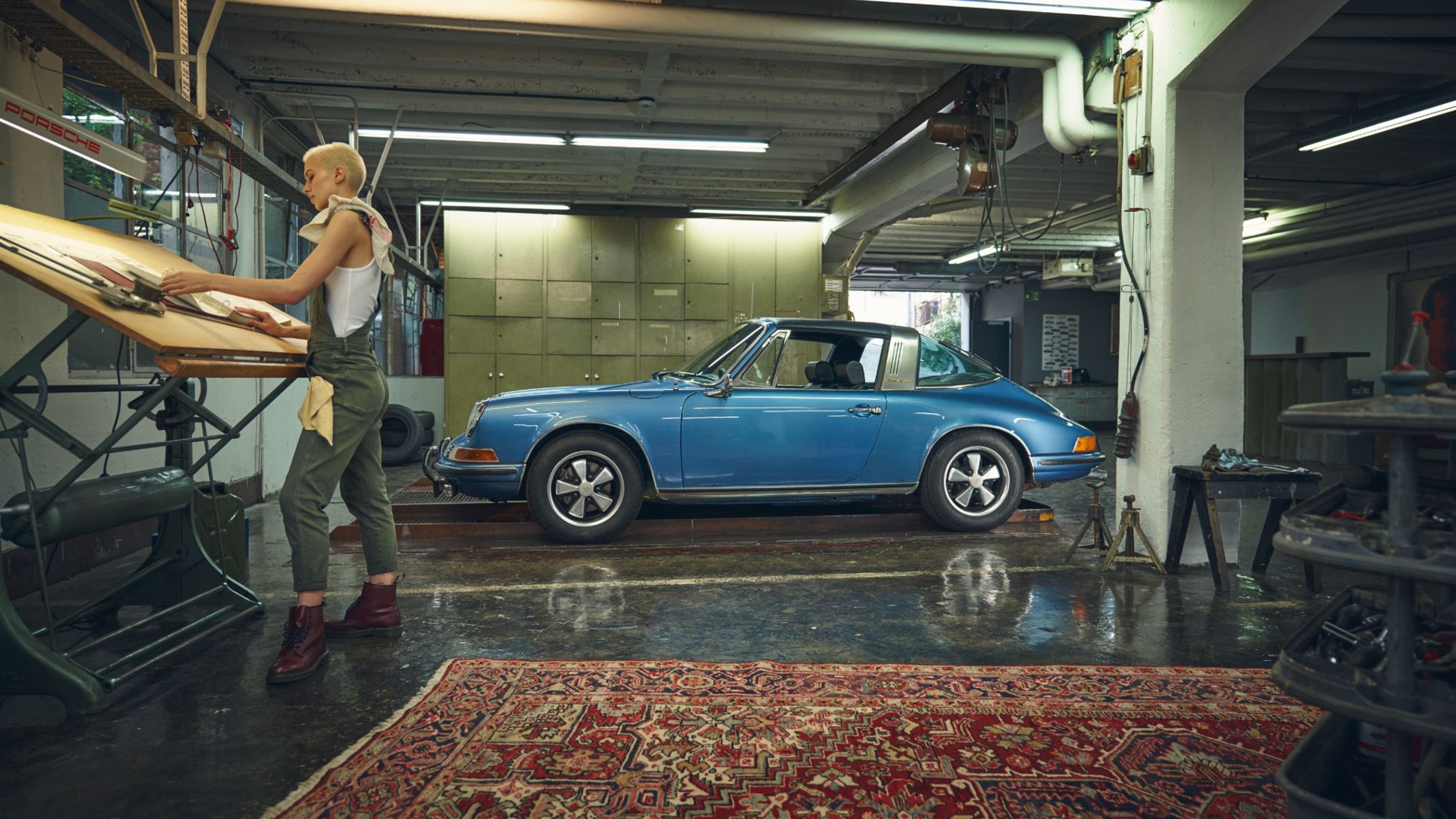
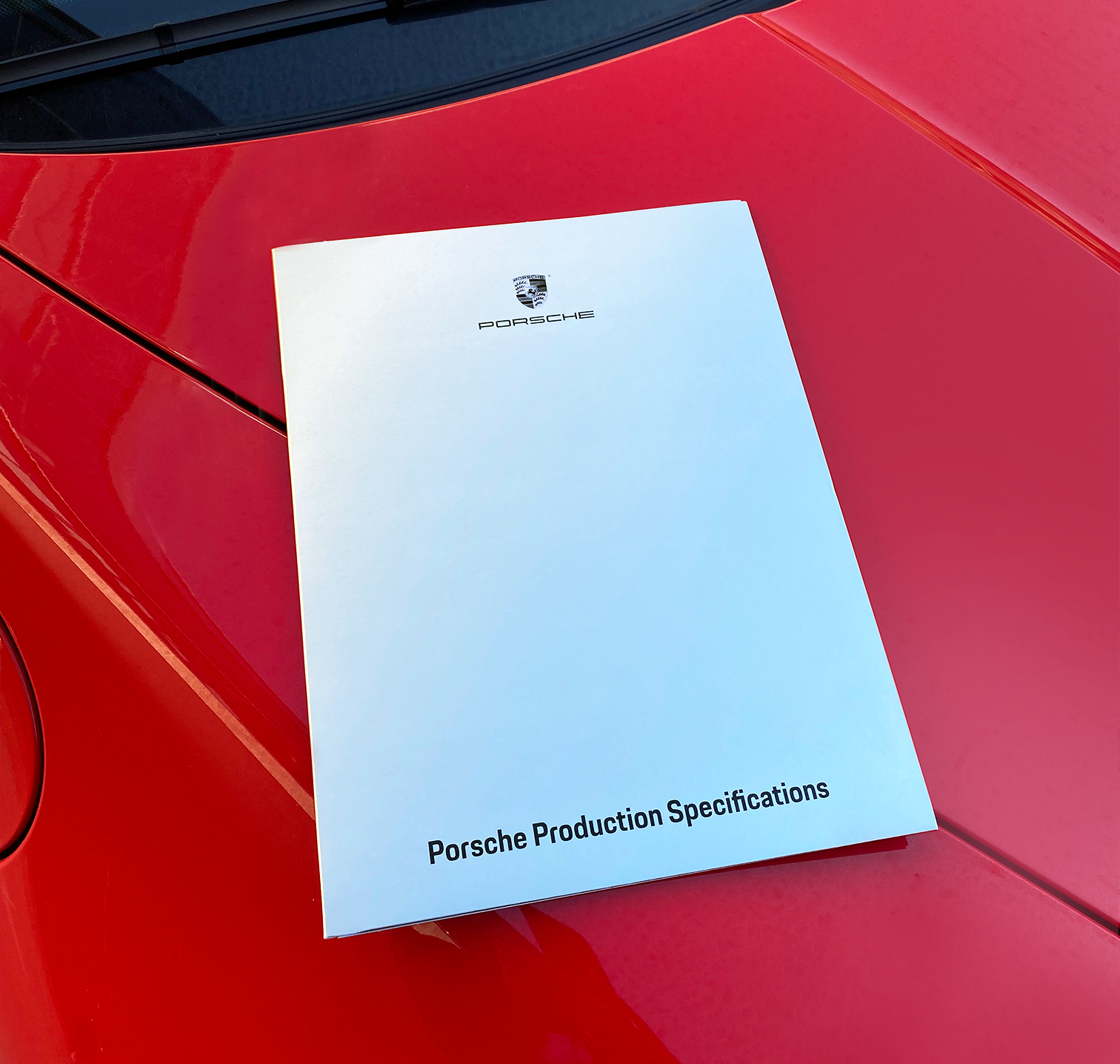
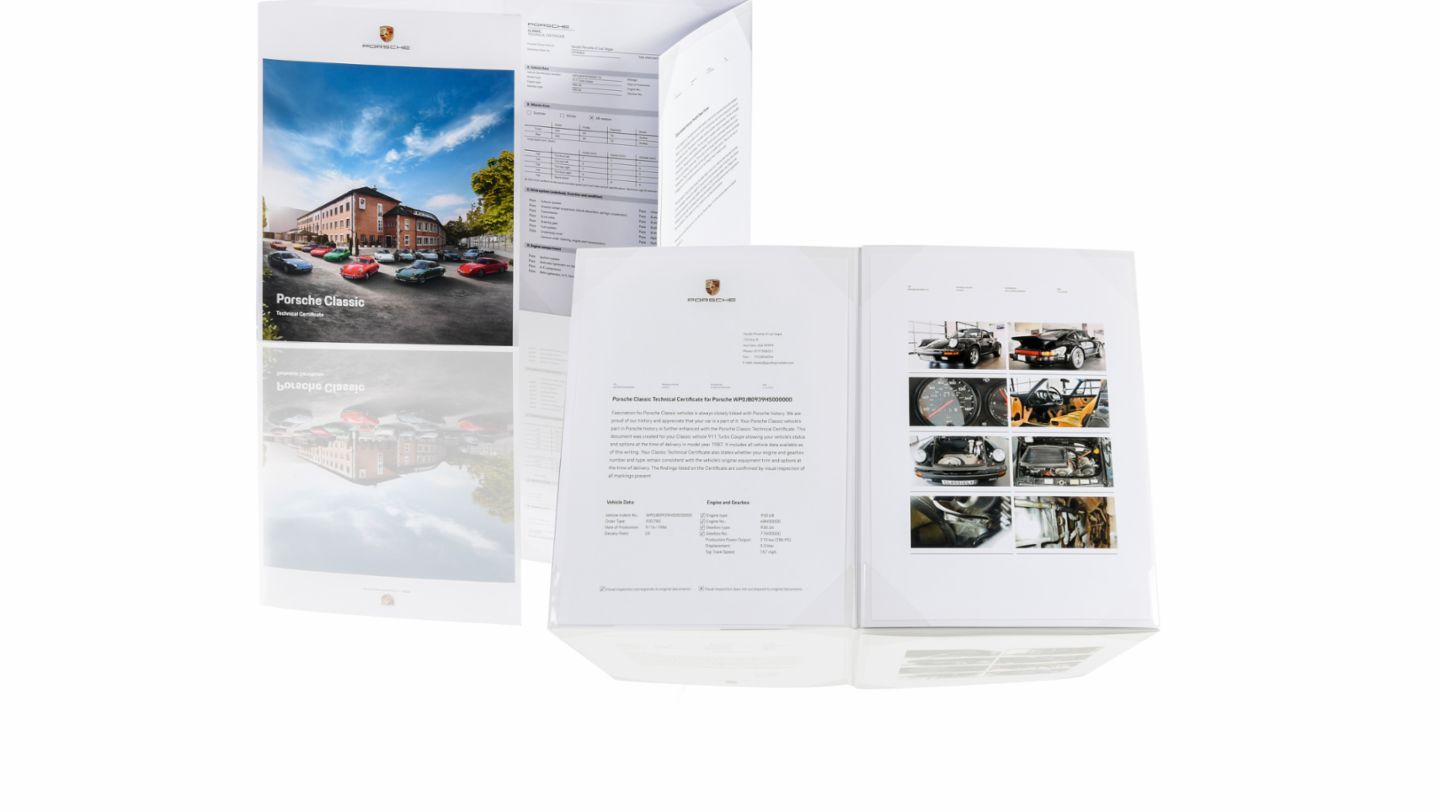
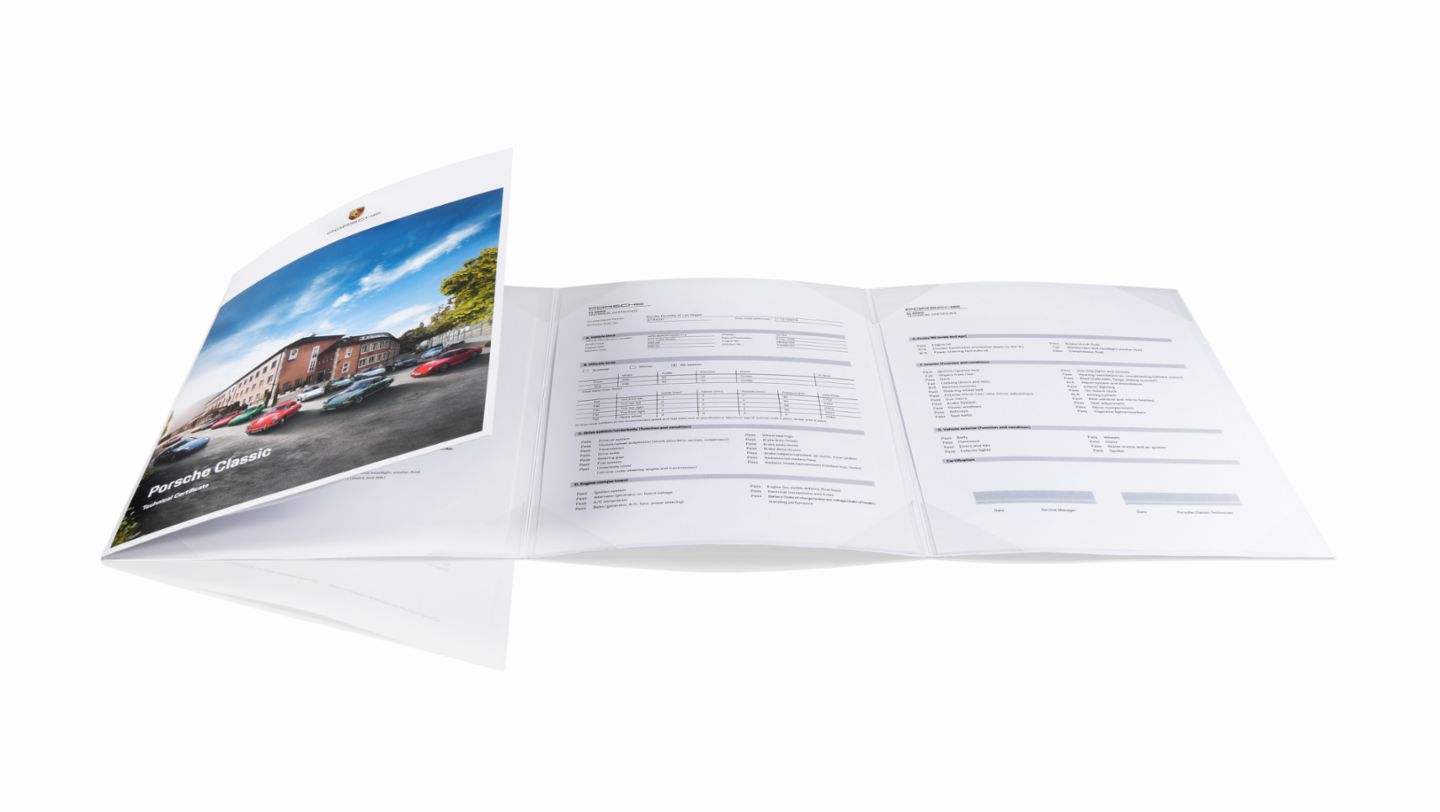


.jpg/jcr:content/MicrosoftTeams-image%20(18).jpg)
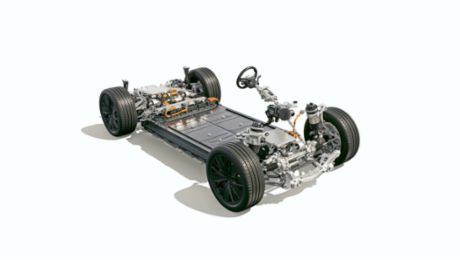.jpg)
